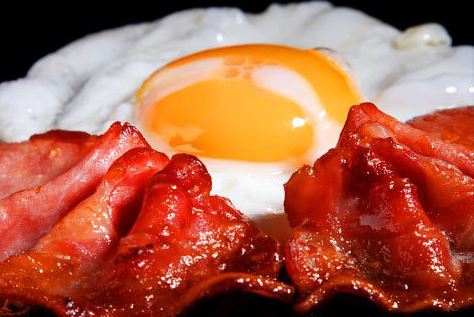What is Keto Diet?
From the folks at www.Heartlandfoods.com with comments from Dr. Kydonieus inserted as well. Stay healthy!
What the Heck is Keto?
Many people have heard of the term “keto,” especially with how it’s grown in popularity in recent years. Very few people understand every aspect of keto and what it entails. In key terms, you are drastically reducing carbohydrate intake and replacing it with fat. This reduction in carbs puts your body into a metabolic state called ketosis.
The diet originated back in the 1920s as a way to treat childhood epilepsy and due to its striking success rate—people eating a keto diet experienced about 30 to 40 percent fewer seizures. It’s still used in that way today!
Is Keto Good for the General Healthy Population?
The ketogenic diet is super high in fat (about 80 percent of your daily calories), super low in carbohydrates (less than 5 percent of your daily calories), and moderate in protein (typically 15 to 20 percent of your daily calories).
The most important component of the keto diet is a natural and normal process called ketosis. Normally, bodies can run pretty well on glucose. Glucose is produced when the body breaks down carbohydrates. It’s a very simple process, which is why it’s been the body’s preferred method of energy conversion.
When you cut back on carbs or just haven’t eaten in a while, your body looks for other sources of energy to fill the void. Fat is typically that source. When your blood sugar drops because you’re not feeding your body carbs, fat is released from your cells and flood the liver. The liver turns the fat into ketone bodies, which your body uses as its second source for energy. Studies have even shown that the human brain operates more effectively and efficiently converting ketone bodies to energy versus glucose.
What About the Nutrients You Are No Longer Eating?
A drawback is that whenever you eliminate a large number of foods from your diet, it’s natural to wonder if you’re getting enough nutrition — or if you’ll end up with a deficiency of some sort. That’s why transitioning to a low carb, ketogenic diet can initially be so stressful. It’s imperative to supplement with nutrients essential for optimal mind and body functions. It’s usually best to get your micro-nutrients through natural, whole foods and use specific “whole-food” supplements like we use at Life Enhancing Wellness Center in Ruckersville, Virginia to support this lifestyle change. Dr. Kydonieus uses Nutrition Response Testing to design an exact Program for your body to compliment any eating style.

Additionally, natural, non-GMO food is what your body needs and YOU need to learn what choices will keep you the healthiest for the rest of your life. Regular check-ups by a Nutrition Response Testing Practitioner are vital to dealing with new “diets” and the polluted planet we live on things are always changing and you must learn how to change with them if you want to be as healthy as possible. Dr. Kydonieus is now even offering #TeleNutrition Sessions for people that cannot come into the office or live too far away. Email or call us for your #TeleNutrition Appointment today! 434-481-2012
Getting your micro-nutrients from whole foods will help you consume a larger variety of nutrients, fiber, and protective substances like antioxidants. Your body also absorbs the nutrients more effectively from whole foods.
One huge factor is that the food quality matters. The healthier, more organic, raw and preservative-free food usually contains more nutrient density or micro-nutrients. For example, grass-fed beef contains up to six times more omega-3 fatty acids than normal grain-fed beef.
So What Can You Eat on Keto?
It’s important to find out what foods you can eat on the keto diet, if the keto diet would work for you, and what you can expect if you ditch the carbs and embrace the fat!
A typical keto diet consists largely of:
- Meat
- Fish
- Butter
- Eggs
- Cheese
- Heavy cream
- Oils
- Nuts
- Avocados
- Seeds
- Low-carb green vegetables
The Benefits of Keto
While the keto diet certainly is not easy, research shows it has some potential therapeutic benefits, in addition to its use for treating epilepsy. Here are some areas of research where a keto diet shows promise.
- Alzheimer’s Disease: Research suggests that when patients with Alzheimer’s eat a ketogenic diet, cognitive function significantly improves.
- Parkinson’s Disease: One of the key features of Parkinson’s disease is the abnormal accumulation of a protein known as alpha-synuclein. Research funded by the Michael J. Fox Foundation has explored whether a ketogenic diet stimulates the breakdown of these proteins, reducing the amount of alpha-synuclein in the brain.
- Multiple Sclerosis: In a small 2016 study, patients with multiple sclerosis (MS) were put on a ketogenic diet. After six months, they reported improved quality of life, as well as physical and mental health improvements.
- Cardiovascular Disease: The keto diet may help improve triglyceride levels of both HDL and LDL.
- Type 2 Diabetes: This population has been studied heavily with the keto diet since it’s technically as low-carb as you can get. Evidence suggests that an ultra-low-carb diet (like the keto diet) may help reduce A1C and improve insulin sensitivity by as much as 75 percent. In fact, a 2017 review found that a keto diet was associated with better glucose control and a reduction in medication use.
- Cancer: Early experimental research suggests that the keto diet may have anti-tumor effects, likely because it reduces overall calorie intake (and circulating glucose) for tumor growth.
In addition, one of the keto diet’s main selling points and a primary reason it’s so popular: you can drop a lot of weight in a relatively short period of time. A number of studies have found that patients assigned to a very-low-carbohydrate diet had greater weight-loss outcomes compared with those eating low fat.
Keto For Weight Loss
Let’s look at some reasons why keto may work for some as a weight-loss tool.
- Calorie Restriction: When you severely restrict your food intake by cutting out many categories of food, you’re very likely to lose weight.
- Water Loss: There is some evidence that higher-protein diets like the keto diet do have some weight loss benefits, partially because both fat and protein are satiating so you don’t feel hungry, but also because of the loss in glycogen stores. Glycogen is the body’s glucose storage that is bound up with water, so when we deplete glycogen, you also deplete your water storage. Lose a ton of water, and you’re going to drop weight fast.
- Appetite Control: In addition to the satiating capabilities of fat and protein, research suggests that the keto diet may help suppress the hunger hormone, ghrelin. For people who are always hangry, this is a really big plus!
Conclusion
From the early understanding of keto research and literature, it looks like we’re just scratching the surface on understanding some of the potential therapeutic roles of the keto diet. The reality is that there’s no ‘one-size-fits-all’ model for diets and everything comes down to individuality. Each person is unique with highly individualized nutritional requirements. Find what works for you and stick with it! Give the keto diet a try and see if it could be the answer you’re looking for.
